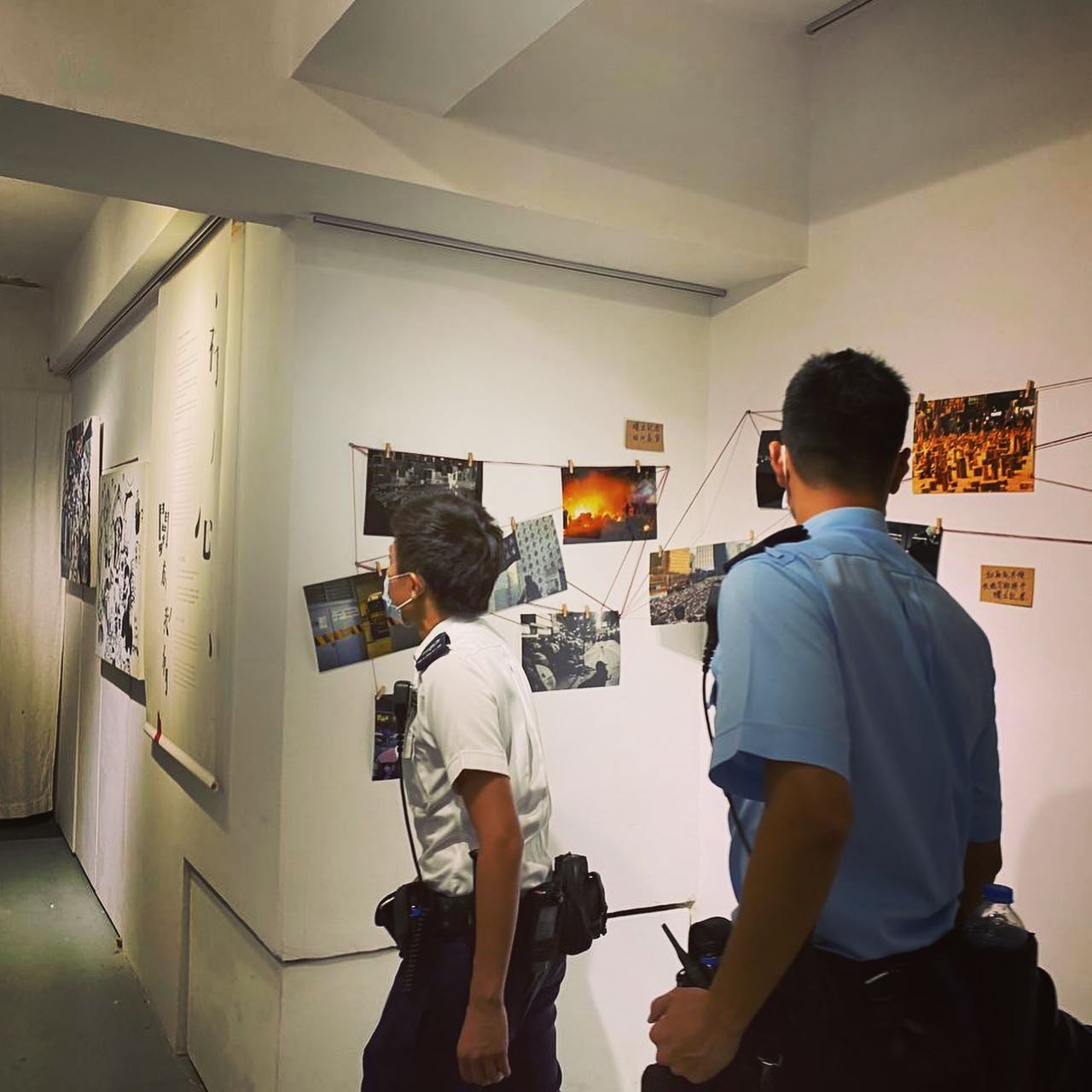
An exhibition memorializing the two-year anniversary of the 2019 pro-democracy protests in Hong Kong was raided by police this weekend, marking the latest in a string of soft state crackdowns on politically-themed art in the autonomous region.
On Sunday, uniformed officers arrived at Parallel Space, a small storefront gallery in the Sham Shui Po neighborhood, according to ArtAsiaPacific. They claimed to have received a complaint that the space was exhibiting “seditious” content—a criminal offense under Hong Kong’s controversial new national security law.
The gallery is showing “730 days after June 9,” an exhibition about the historic protests that erupted in response to the proposed Fugitive Offenders Ordinance, which would have allowed Hong Kong to unilaterally extradite criminals to mainland China and Taiwan. The show, organized by the activist group Local Youth Will, invited gallerygoers to exchange with each other small items related to the protests.
Local Youth Will did not immediately respond to a request for comment. In a Facebook post detailing the raid, they called the authorities’ auctions an attempt to “exert pressure by creating White Terror,” referring to the suppression of dissidents in Taiwan, and “further shrink civil society’s only right to freedom of expression.”
“We are not afraid of the regime’s oppression,” Local Will Youth said in a statement to AAP. “We hope to lead by example and let our fellow travelers know they are not alone. We can still overcome fear through our actions, regain civilian power, and reconnect with each other to expand our civil society.”
The raid wasn’t the first time the show attracted the attention of state officials. On June 11, members of the Hong Kong Food and Environmental Hygiene Department visited Parallel Space claiming that the owners were operating the event without a proper license.
The show has not been shut down, however, and will remain on view through June 21.
Hong Kong’s national security law, passed in the summer of 2020, effectively allows the government of mainland China to prosecute perceived acts of subversion and dissidents in the autonomous region of Hong Kong. To date, no major art shows have been officially shut down as a result, but many have been the subject of investigations from the hygiene department. The same tactic was employed earlier this month when an annual temporary exhibition in Hong Kong dedicated to the victims of the 1989 Tiananmen Square Massacre was temporarily shut down by state officials.
Last week, meanwhile, the Hong Kong government announced that it has beefed up its film censorship guidelines, allowing the state to suppress any motion-picture “portrayal, depiction, or treatment of any act or activity which may amount to an offense endangering national security.”